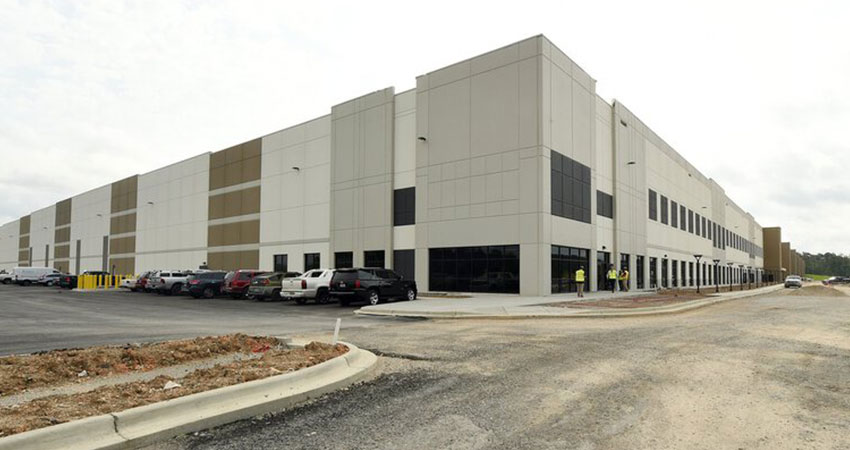The Amazon FC in Bessemer, AL
Update, Sept. 24: California Gov. Gavin Newsome on Thursday signed a bill that targets labor practices in ecommerce warehouses, including banning the enforcement of performance quotas that impinge on basic worker’s rights like restroom and lunch breaks.
The initiative is widely viewed as targeting Amazon, which has a major presence in the state, and opposed by the California Retailers Association, of which Amazon is a member.
Update, Sept. 9: the California state senate voted in favor of the bill, called the Warehouse Workers Protection Act, in a 26-11 vote on Sept. 8. It now goes to the full assembly for an expected affirmative vote, then to the desk of embattled Gov. Gavin Newsome, who has not indicated support but will likely sign.
A California bill that passed its assembly in May and is pending before the state senate targets Amazon’s algorithm-driven labor practices at its fulfillment centers – without naming Amazon specifically.
The bill, called AB 701, would require companies to provide new warehouse hires with a description of all work quotas, and the consequences of failing to meet them. A second, related part of the measure would prevent companies from requiring workers to meet quotas that would keep them from taking meal and restroom breaks, or would violate OSHA standards.
While Amazon isn’t named, it’s generally understood that the bill’s intent is to go after the ecommerce giant, its labor practices and working conditions at its hundreds of fulfillment locations, which have come under increased scrutiny.
“Amazon has set the pace, creating a market for next-day delivery of consumer goods,” Lorena Gonzalez, a Democratic assembly member from San Diego and the bill’s author, told the Los Angeles Times. “We see Walmart and other large warehouses following suit. We need to make sure our laws catch up with that.”
Opposition from business groups to the bill has been intense, especially considering the wide net it will cast over the state’s economy and the inevitable costly litigation it will spawn. California, as the entryway for the vast majority of imported goods sold in this country, has a massive concentration of logistics, supply chain, transportation and distribution facilities.
“They’re going after one company, but at the same time they’re pulling everyone else in the supply chain under this umbrella,” Rachel Michelin, president of the California Retailers Association, told the Times; Amazon has a seat on the group’s board.
Amazon has even more workforce trouble on its hands in the runup to peak season. The National Labor Relations Board is expected to order a new union election at an Amazon fulfillment center in Bessemer, AL, where an April vote went overwhelmingly in Amazon’s favor. The vote was immediately challenged by the union, which claimed Amazon improperly interfered with the election. This was primarily related to installation of a special U.S. Postal Service mailing station on the premises for union ballots, at the company’s request.
Also, the Teamsters union is putting its considerable heft and resources behind a highly organized national campaign to organize Amazon’s hundreds of thousands of fulfillment workers.

